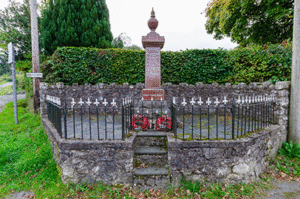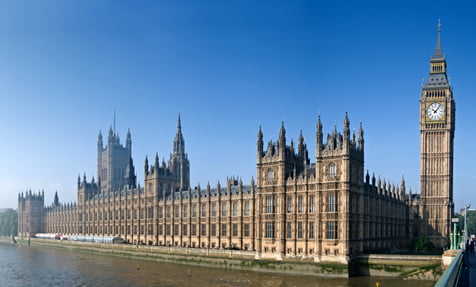UK Death Records Search Procedure
Finding the death record of someone who died in the UK can be relatively straight forward or it can be challenging. Before you begin to search, it is helpful to have the name of the person for whom you are searching, the approximate date of death, and where in the UK that person died. Once you have that information, there are several ways for you to track the death record.
If you are searching for a death that occurred in England or Wales before July 1837, no central record was kept. Your best bet is to start with the local parish records of where the deceased is buried if you know. After 1837, information began to be collected on a national basis. As such, your search may prove a great deal easier.
 Two sets of Death Certificate indexes exist in the UK. The original is held by the local register office where the death occurred. If you know exactly where the death you are researching took place, it may be much easier to start with the local office as they will have far fewer certificates to search through.
Two sets of Death Certificate indexes exist in the UK. The original is held by the local register office where the death occurred. If you know exactly where the death you are researching took place, it may be much easier to start with the local office as they will have far fewer certificates to search through.
The second set of death certificates, for England and Wales, are kept at the General Register Office (GRO). Each certificate is assigned an Index Reference Number (IRN). Keeping in mind that the GRO has tens of millions of death certificates, knowing the IRN will make your search considerably easier and faster. If you need to find the IRN, many of the deaths between 1837 and the early 1960s have been transcribed and are available online. You can also find full sets of the IRN on microfiche at the larger libraries.
Searching for a death certificate in Scotland or Northern Ireland is slightly different. While it is still helpful to have the name and approximate date of death, rather than the location of the death you should try to discover the person’s religious denomination. The GRO for Northern Ireland only has death certificates since 1864; the GRO for Scotland since 1855. Again, it may prove easier to search the local parish records if you have a sense of where the death occurred.
Ordering a death certificate can be sped up by applying in person. In Northern Ireland, the address is Oxford House, 49 – 55 Chichester Street, Belfast. In Scotland, head over to New Register House, 3 West Register Street, Edinburgh.
England Death Records
England’s death records contain various beneficial information. This includes the decedent’s date and place of death. Also, you can find the person’s full name, sex, age, cause of death, and occupation. Interestingly, if the decedent is a child, then you can find the name of the child’s parent, but, for adults, the parent’s name is not listed. You can uncover details about the informant of the death as well. These consist of the informant’s name, residence, and relationship to the deceased. Supposing that the informant was a family member, then the records may help guide you in outlining a family tree. Lastly, you can find the date of registration of the death and the registrar’s name.
An online search of the General Register Office (GRO) on the other hand, can help you find death records between 1837 to 1957 and 1984 to 2019 for free. It gives you the name of the person registered, age at death, and the year of their registration. However, the name of the spouse or parent is not indicated.
Scotland Death Records
Scotland enforced mandatory civil registration in 1855. Hence for records after 1855, you may obtain a list of valuable data about the deceased. This includes the person’s full name, sex, marital status, and age in addition to the time, place, and cause of death. In case you are trying to trace your family, then Scotland’s death records may be helpful. This is because you find the name of the deceased’s spouse and much more about the parents. Regarding the deceased’s father, you can find the full name and occupation. For the mother, the death record provides you with her name and maiden surname. However, if the parents are deceased, then it would be listed as such. To add up, an informant’s name, address, and relation to the deceased are mentioned. The location and time of the death registration are also stated next to the registrar’s signature. Only on 1855 death records, you find the deceased’s birthplace along with the names and ages of his/her children.
This can be vital for your genealogy searches.
The Scotlands People Centre has records dating between 1855 and 2016 . It is an online platform that offers only basic information for free such as the deceased’s name, year, and registration district.
Wales Death Records
In Wales, you can find plenty of information on a deceased. The death records show the deceased’s name, age, and cause of death in addition to the date and place of death. The occupation is also indicated, but, for children, it is replaced with a parent’s name. It is possible to discover a spouse’s name from the death record. Both of these findings can help in genealogy searches about your family or somebody else’s. Regarding the informant of the death, you can find his/her signature, residence, and relationship to the deceased. The mere chance of encountering a familial connection between the deceased and the informant can help you immensely in drawing the family tree.
Searching the online platform at the General Register Office (GRO) of Wales allows you access to death records between 1837 to 1957 and 1984 to 2019 for free (https://www.nationalarchives.gov.uk/help-with-your-research/research-guides/birth-marriage-death-england-and-wales/). Other online platforms provide information related to the deceased’s full name, date, and place of death, but with no details about parents or spouses.
Northern Ireland Death Records
In searching the death records of Northern Ireland, you may unravel a lot about a deceased person. The records indicate the name, age, marital status, and period of sickness. Also, the date, location, and cause of death are stated in addition to the informant’s signature, qualification, and dwelling. In case you are looking for a family member, the records can be of assistance by sometimes indicating the name of a married or widowed woman’s husband. On the other hand, if the woman is single, then the father’s name can be identified. Moreover, the occupation is substituted with a parent’s name except the deceased being a child. Since 1973, the death records in Northern Ireland have included the deceased’s date and place of birth.
The General Register Office in Northern Ireland (GRONI) offers an online search directory to look up death records. However, the online directory only covers death records that are more than 50 years old. To obtain the records that are not listed, you need to register an appointment at the GRONI’s public search room in Belfast.
How To Find If Someone Died
To find out if someone died in the UK, you’ll first want to know what time frame to look at. It’s important to note that most all public records in the UK are sealed for 100 years. This means that if you’re looking up the death record of a relative from over 100 years ago then you may be able to find this through the UK National Archives, genealogy websites or parish records, depending on how far back you are searching. For those that are looking for people that died today in the UK, ranging from a pandemic to natural causes, this information may be limited. Typically only immediate family can access recent UK death records.
Advertising Disclosure: This post may contain promotional links. publicrecordsearch.co.uk may be compensated if you use these links.

